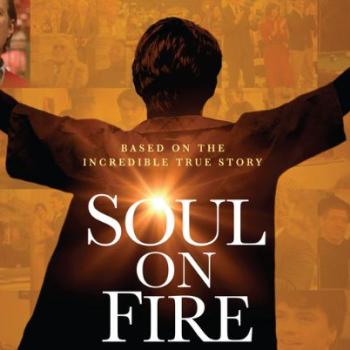I was not one of the first to see Smallfoot. I missed a few preview screenings, although I was able to chat with director Karey Kirkpatrick. After our interview, I made plans to take my family on opening night, especially because my elementary-age girls love animated films and I’d already heard Zendaya’s beautiful “Wonderful Life,” which almost sounds evangelistic: “There’s more to life than meets the eye . . . It’s all much bigger than we know . . .It’s only just beginning to unfold.”

Before we hit the theater, however, I read a few takes on the story that wondered if the film, which featured a Yeti arguing for the existence of the mythical smallfoot, had a not-so-subtle message against religion. There was, after all, the Stonekeeper, a village elder who wears restrictive stone tablets as a coat, and a planned way of life to keep villagers from questioning these decrees. Although I hesitated for a moment, I went ahead and took the girls after reading a few trusted voices that did not see the anti-religion message. I’m also less inclined to be worried about media messages considering my toddler viewed the Yo Gabba Gabba episode on ‘Sharing’ probably around 10,000 times and was no more inclined to generosity with toys than if she hadn’t watched any.

Smallfoot was, in fact, delightful. Very clever writing, memorable, sing-able songs, and my girls, sandwiched in seats between my wife and I, hee-haw laughed and spoke back to the screen several times. They quickly picked up on the themes of honesty, being true to friends, and standing up for what you believe in. Does that mean Migo the yeti, who finds himself at odds with what the rocks say is true, subtly delivered a message at odds with the legacy of faith we’re trying to instill in them?
For me, I didn’t see Smallfoot as anti-religion as much as it is anti-groupthink. It is finding the truth and not being afraid to tell it, no matter the consequences. Heroes of the faith did that and believers around the world still do, bucking the established norms and accepted philosophies of their societies, some of them even religious in nature. True Christianity, however, is not restrictive and fragile. It is explosive and freedom in its purest form: “Then you will know the truth, and the truth will set you free” (John 8:32).
There could be additional deliberate messages to viewers of various ages in the film, as Kirkpatrick admitted, but what I’ll highlight with my girls is the boldness to speak solid, timeless truth to power. Our faith isn’t contained on stones, but it existed before time began: “In the beginning was the Word, and the Word was with God, and the Word was God” (John 1:1). It also will never “pass away” (Matthew 24:25).
No doubt the girls will one day be confronted with established norms, whether from authority figures, teachers or peers, but I hope they find the courage, as Migo did, to be unwavering in the faith they know to be true.
Smallfoot, releasing from Warner Brothers, stars Channing Tatum as the yeti, Migo, and James Corden as the smallfoot, Percy. Also starring are Zendaya, Common, LeBron James, Danny DeVito, Gina Rodriguez, Yara Shahidi, Ely Henry, and Jimmy Tatro. It was directed by Karey Kirkpatrick, Annie Award-winning director of “Over the Hedge” and Annie nominee for the screenplays for “Chicken Run” and “James and the Giant Peach.” The screenplay was written by Kirkpatrick and Clare Sera, screen story by John Requa, Glenn Ficarra and Kirkpatrick, based on the book Yeti Tracks, by Sergio Pablos.
Listen to Zendaya’s “Wonderful Life” here:












